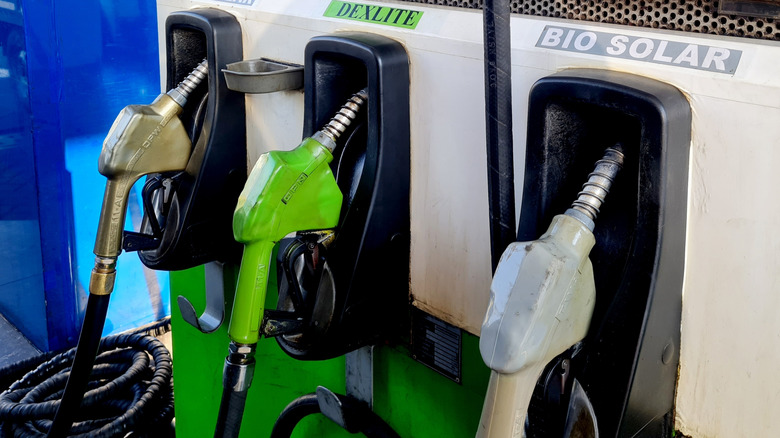Can You Mix Diesel And Biodiesel?
It's no secret that over the past few years, we've seen a remarkable improvement in how machines are powered. After all, with climate concerns on the rise, many countries are trying to explore alternative renewable energy sources that are easier on engines and friendlier on the environment, like biodiesel. This biofuel is a real contender in the world of sustainable energy and is derived from renewable resources like animal fats and used vegetable oils. Because it's produced from renewable resources, it reduces our reliance on finite resources, making it a great alternative to fossil fuels.
Of course, some people might confuse biodiesel with the typical fuel they find at the gas station. But there are significant differences between biodiesel and diesel. For instance, biodiesel is more eco-conscious than diesel, which produces many pollutants that affect the atmosphere. Also, biodiesel plays a crucial role in improving the lubricity in engines, which helps reduce the wear and tear on most engine components.
Despite these benefits, though, biodiesel has its own set of drawbacks. For example, it can thicken in cold temperatures, especially in pure form. In the worst-case scenario, this can result in clogged fuel filters and a damaged engine.
This raises an important question: Can you mix biodiesel with diesel to enjoy the benefits biodiesel offers while mitigating the risks? The short answer is yes, you can, but there are certain things to consider, like the blend and your vehicle. In fact, blending biodiesel with diesel is not just possible, it's actually common, as it allows for a gradual introduction.
What you should know before mixing diesel with biodiesel
Filling up your vehicle with this mixture is a great way of giving your engine an eco-friendly upgrade. That doesn't mean you should do so without understanding some important details. One basic thing you should know is that all mixtures are not the same, and not all diesel engines can handle the mixtures. For instance, most modern diesel engines can safely use blends like B5 (5% biodiesel) and have issues running on B20 (20% biodiesel)
On the other hand, some vehicles, especially those with a Cummins engine, will operate on B20 without a fuse. If you go above that, however, you could actually cause more harm than good. In fact, using blends such as B50 and B100 could sometimes lead to sluggish acceleration, rough idling or misfires, and hard starts in cold weather, especially when vegetable oil deposits clog the injectors and fuel filters. Also, if your engine is old, or was not designed to handle the increased solvent power of biodiesel, it's a good idea to avoid mixing diesel with biodiesel altogether. You could easily run into problems like injector fouling, or even rubber seal degradation.
Lastly, you should know that, unlike regular diesel that can sit up to six months with minimal issues, biodiesel doesn't age as gracefully. In fact, according to the National Center for Biotechnology Information, this biofuel doesn't love heat or sunlight and can degrade at a very fast rate. When this happens, the mixture will separate and create room for mold growth, an issue that could damage injectors and fuel lines over time. That's why you should store this mixture in a tank away from light and heat sources. You'll also want to store all blends in a clean, dry tank that can't absorb water.

